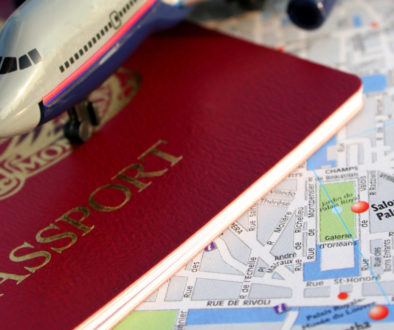How to Save Money on a Language Course Abroad
The cost of a good school and good quality accommodation for an extended period abroad can be of concern to clients who may not be working yet or who otherwise do not have many funds at their disposal. For this reason, we have created this section on some ways to save money on a language study trip.
- First and foremost, DO NOT book a cheap school! It may be very tempting to look for very low-cost language schools on the internet in an attempt to save money, but we can almost guarantee that you will be disappointed with the outcome. Many clients have told us about how much money they actually wasted in booking these schools, money that was not refundable once the client complained that they were dissatisfied. The classes were crowded, the teachers were unqualified and/or uninterested in the class, and in some cases, the schools closed before the student got there or while they were studying there! As with almost all things in life, “when you buy cheap, you buy twice,” and language schools are no exception. A language course abroad is a major investment in career and life preparation, as much as a college diploma or education of any other type. The key question is value for money. Spending a little more on a school often means a significant difference in the quality of the facilities, teaching, and student welfare. There are many considerations to make in determining the quality of a language school, which we have illustrated in many places on this website. In order to know where to start, every school on here has already been carefully selected for good quality, so by booking one, you can’t go wrong. There will also never be a question of losing money if a school should close before a student gets there. All of the schools we that use are accredited by bodies who in themselves guarantee that if a member school closes, the student will be able to finish their classes at another one at no additional expense to the student. To understand what we look for in good language schools, please see the section “How Marshall Language Services Chooses its Schools,” our “School Accreditation Guide,” and sign up for our e-booklet, “Questions to ask when selecting a language school.”
- Go in the low season, when possible. The exact dates can vary from school to school and destination to destination, but the low season is typically outside of May/June to August/September. Many schools have high season supplements on courses and/or accommodation, particularly those in destinations that are attractive to local and international tourists, that you can avoid paying outside of this period, and a large number of schools also have very generous low season discounts. We will publish these offers on our website when possible, but you can always ask about one for a school you’re interested in. Very often a school will offer one just because an agent asks for it.
- Choose a lower cost destination. Some cities, areas of a country, and countries themselves just cost less than others. For an English course, for example, cities like London and New York are not the best choices for budget-minded students. The cost of living in those places is high also for the persons who live there, but they often earn higher-than-average salaries to compensate. In England, the whole North costs about 15% less than the South (and northern cities will often give a student a better chance at an “English” experience than cities in the south that have a high concentration of tourists, without sacrificing beauty and culture. There are some fantastic locations in the north—please ask us!) As for countries in general, for an English language course, Malta offers some excellent schools that give very good value in terms of quality and cost, particularly for students who might also like to have some private lessons. There are now many more travel connections to Malta than in the past and the country has very much evolved and modernized since joining the European Union.
- Choose a school in a small city or town instead of a large city. The cost of living in a small city or town is always lower than in a large city, and it will very often be possible for a student to walk between the school, the host family, and most other places in the destination, eliminating the need for a public transport pass.
- Choose accommodation with a host family. For all programs and in almost all schools, this is a less expensive option than staying in a student residence. Sometimes the cost on paper for a host family offering half or full board is the same as in a student residence, but meals are not always included in a residence, so a student will have to also factor in the cost of shopping for groceries or eating all meals out.
- Where possible, choose courses in the afternoon instead of in the morning. For students who choose only a half-day course, a few schools give students the option of having lessons in the afternoon rather in the morning. The teachers and the quality of the lessons will be the same as for the morning, but the schools offer the lower price simply because there is less demand for afternoon lessons, and it prevents the classroom space and work hours for their teachers from going to waste. We also work a few schools who offer free lessons (in addition to a paid course) by teachers who are training in the school.
- Study in a destination that is well-served by low cost airlines. For some destinations, even in the high season, the use of low-cost airlines can offer a significant savings on traveling there. If you are not particular about the choice of a school, consider that there are excellent language schools in most destinations in Europe and the UK, or they can be easily reached from a city with an airport served by low-cost airlines. It will be important, however, to consider how easily the city can be reached from the airport and the time that your particular flight arrives. In some cases, the airports are quite far, and there may be no public transportation very early or late at night. The cost of a taxi over a long distance or the need to pay for an extra night in an accommodation can cancel out some or all of those savings.
- Ask about special offers. Many schools offer discounts on their courses in the low season, or to particular nationalities in an effort to better balance their nationality mixes. We will publish these offers as we receive them, but if a particular school or destination interests you and you don’t see one, please ask us. We will contact the school about them–sometimes schools haven’t released them yet, or they will offer a discount on the spot.
- If you have taken a language course in the past, return to the same school or to schools in the same group. If you have taken a language study trip to a school in the past, you can usually save on the enrolment fee if you return to that school or to a school in another location belonging to the same company.
- If you are working, ask if your employer can subsidize all or part of the cost of your course. Many employers will do this as they recognize the importance of the skills of their employees, including foreign language skills. Your employer may not have offered to do this, but you’ll never know unless you ask.
- If you are looking at a course for the following year, book it in the current year. When you do this, most schools will honor the prices at least for the course for the current year. You will not need to pay anything but the initial deposit and if you are unable to go, you will be refunded any additional fees until the time that the balance becomes due, usually 4-8 weeks before the beginning of the course.
- Take advantage of early bird specials and sibling discounts. Many schools and programs offer discounts if you book at least three months in advance, and schools offering programs for juniors will usually offer discounts for siblings within the same family.
- For long-term students (3 months or more) doing a half-day course, it can be helpful to look for a job while studying. Some schools have bulletin boards in which they list job openings, or other students can communicate jobs that they might be leaving when they return home. Schools may also have organized job clubs or teachers who can help students put together a Curriculum Vitae in the local language and/or give feedback on a mock job interview. The school may also have a paid job placement service, available for a fee. Students going to Australia can also take advantage of the working holiday visa, which is explained in more detail in our section about that country.



